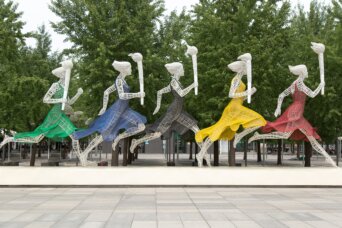- About
- Topics
- Story
- In-Depth
- Picks
- Opinion
- News
- Donate
- Signup for our newsletterOur Editors' Best Picks.Send
Read, Debate: Engage.
| topic: | Racism |
|---|---|
| located: | India |
| editor: | Tish Sanghera |
The two-week Olympic period usually signifies a period of unity, national pride and admiration of sporting excellence - but that’s not the case if you’re a ‘low-caste’ or Dalit player in a losing hockey match.
Despite being the only Indian hockey player to score a hat trick in an Olympic hockey match and helping her team to reach the bronze medal play-offs at Tokyo 2020 - the best Olympic performance for the women’s team - Vandana Katariya’s Dalit status overshadows her successes to some people.
Her family in the northern state of Uttarakhand was targeted by local ‘upper-caste’ residents, who reportedly said the team lost “because there were too many Dalit players on the team.” One of the men alleged to have hurled the hate speech against Katariya and the Dalit community is reportedly a hockey player himself, who has played at the national level.
The police charges against three of the men is undoubtedly welcome and sends the correct message, as does the team captain’s denunciation of them. However, wider support from sports authorities and ministers is still lacking. While Prime Minister Modi called the team to congratulate them on entering the play-off for third place, he and his government have been silent following the attacks on Katariya.
Many observers have compared the events to the shocking racist abuse that three Black English football players received after missing penalty kicks at the Euro 2020 finals. Following the defeat, several major English football clubs, the team captain and even Prime Minister Boris Johnson have all clearly stated that they stood with the players and condemned the racism against them.
The ugliness of the abuse hurled at a young athlete from a humble background who should be held up as a sporting hero has been shocking for many; but it is less surprising to those familiar with the discrimination meted out against Dalits on a near daily basis. So deep is the scourge of caste-based discrimination that it even follows Indians abroad
There are parallels between the Dalit rights movement and today’s calls for Black Lives Matter - both call for the recognition of systemic bias against traditionally oppressed communities and the social structures that perpetuate their oppression.
Unfortunately for Dalits, while Indian celebrities hashtagged and Instagrammed their support for BLM protests last summer, their silence on Dalit violence is deafening.
The sad reality is that in India, caste-based violence, especially against women, is unrelenting and increasingly politicised. Last year, the rape and forced cremation of a 19-year-old girl in Hathras, North India became entangled in a tussle between the two main political parties after Congress leader Rahul Gandhi visited the family in a show of remorse.
As the suicide note of Rohith Vemula, a Dalit activist and PhD student at the University of Hyderabad who hung himself after battling unsurmountable prejudice, read: in India the value of a man is reduced to his immediate identity.
Image: Sam Balye.

